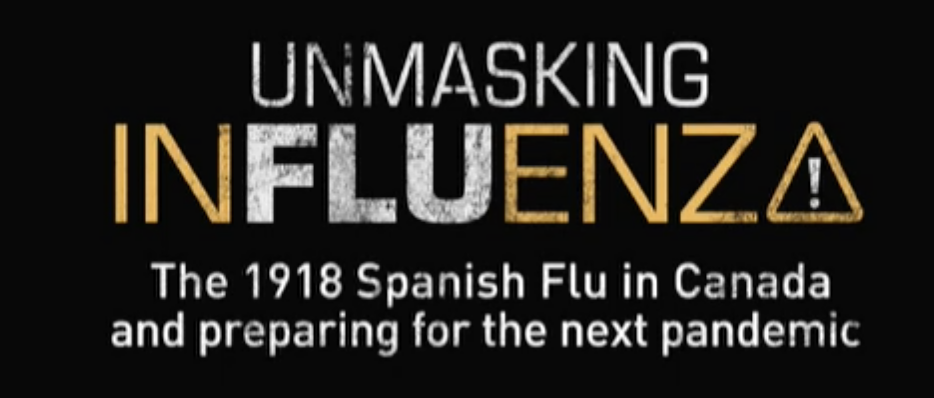Today the World Health Organisation tells us it took 67 days from the first reported case of Covid-19 to reach 100,000 cases. But it took only 11 days for the second 100,000 cases, and just four days for the third 100,000 cases. 
The acceleration in the numbers infected which the experts feared and predicted is now happening.
Of course we are much better placed to deal with this pandemic than with the SARS outbreak in 2003 or with Spanish Flu which claimed the lives of 55,000 people in Canada just over a hundred years ago.
The Spanish Flu pandemic of 1918 is often cited as the closest parallel to what we are getting with COVID 19. The flu anniversary was marked by a raft of articles and broadcast documentaries that I missed. I wasn’t paying much attention at the time.
The very idea of a global contagion on that scale happening today seemed preposterous.
We know better now.
The fascinating CPAC documentary – Unmasking Influenza - looks back at the devasting impact Spanish Flu had on communities across Canada. It also takes us into the present-day pandemic command centre in Winnipeg where they do all the contingency planning. Of course, it is now for real.
Waiting for a vaccine
In 1918 they didn’t have a vaccine - but, then again, neither do we.
However, we know about the importance of social distancing. That didn't figure in people's thinking back then.
But that said, a very few places escaped the Spanish Flu completely by going into lockdown.
Some lucky people got the virus and lived to tell the tell but can't explain how they did it.
A survivor of the 1918 Spanish Flu epidemic, José Ameal Peña, now 105, pulled through after being prescribed vapours of boiled eucalyptus.
Not something I have in my pantry.
This email address is being protected from spambots. You need JavaScript enabled to view it.
The British PM, Boris Johnson, has just ordered a restrictive stay-at-home policy to be enforced by police.
From the Toronto Star: After this, will Public Health funding still be cut?
